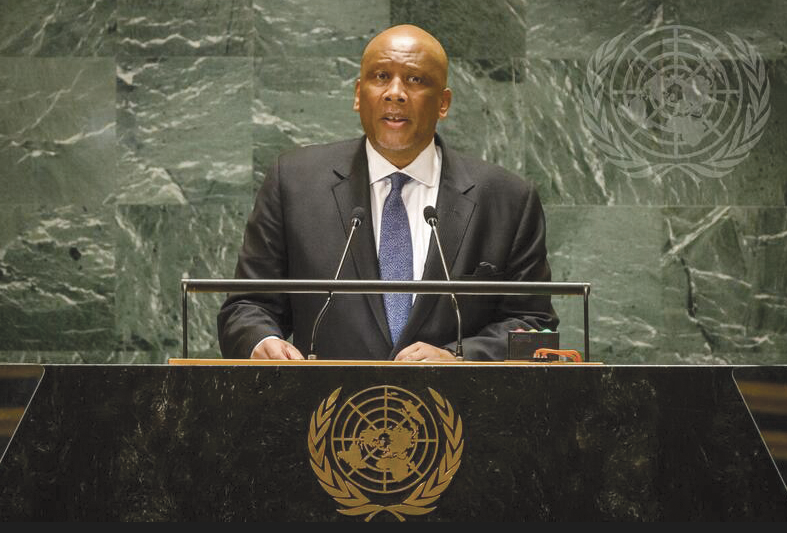King Letsie III, the African Union Nutrition Champion, has called for greater investment and collaboration to end malnutrition and improve Africa’s food systems.
His remarks were delivered in a virtual address to the United Nations Food Systems Summit+4 Stocktaking Moment (UNFSS+4), held from July 27–29 in Addis Ababa, Ethiopia.
The summit was co-hosted by Ethiopia and Italy and aimed to assess global progress and drive collaboration on food systems transformation.
In his speech, King Letsie III stressed the importance of focusing on rural communities, referred to as the “last mile,” where people are most vulnerable to malnutrition and least likely to access support.
“Africa cannot defeat hunger without first helping these regions,” he said.
“Our vision of a food-secure Africa cannot be realised without targeted investment where it matters most: in our villages, among smallholder farmers, and within communities battling both poverty and climate challenges.”
The King also highlighted the need for climate-resilient farming methods, as climate change continues to threaten food production across the continent.
He emphasised that smallholder farmers, who grow the majority of Africa’s food, need support in the form of training, tools, and financial resources to confront environmental challenges and feed the population.
King Letsie III called for increased private sector investment in nutrition-focused projects and urged local banks to provide loans in local currencies to support small and medium-sized enterprises (SMEs) working in agriculture and nutrition.
He introduced the idea of a “womb-to-tomb” approach to nutrition, advocating for support throughout a person’s life, from birth to old age. He said this life-cycle strategy is essential to break the intergenerational cycle of malnutrition.
“As Nutrition Champion, I will continue to raise my voice to ensure that nutrition is not forgotten, that it remains at the heart of Africa’s agenda,” he said.
His speech reinforced Africa’s position at the summit, reminding world leaders that nutrition is not only a development issue but also a foundation for prosperity and peace.
Meanwhile, a report by the UN Secretary-General identifies the transformation of food systems and nutrition patterns as one of six key entry points to accelerate progress toward the Sustainable Development Goals (SDGs).
The State of Food Security and Nutrition in the World 2023 (SOFI Report) notes that while global hunger rates remained stable between 2021 and 2022, they remain significantly higher than pre-COVID-19 levels.
In 2022, an estimated 691 to 783 million people faced hunger, an increase of 122 million compared to 2019.
The report also reveals that over 3.1 billion people, around 42 percent of the global population, were unable to afford a healthy diet in 2021, marking an increase of 134 million since 2019.
This affordability gap, the report warns, undermines global nutrition efforts and exacerbates the challenges faced by vulnerable populations. Malnutrition, it states, remains a pressing concern.
Summary
- In his speech, King Letsie III stressed the importance of focusing on rural communities, referred to as the “last mile,” where people are most vulnerable to malnutrition and least likely to access support.
- “As Nutrition Champion, I will continue to raise my voice to ensure that nutrition is not forgotten, that it remains at the heart of Africa’s agenda,” he said.
- Meanwhile, a report by the UN Secretary-General identifies the transformation of food systems and nutrition patterns as one of six key entry points to accelerate progress toward the Sustainable Development Goals (SDGs).

Ntsoaki Motaung is an award-winning health journalist from Lesotho, specializing in community health stories with a focus on sexual and reproductive health and rights, as well as HIV. She has contributed to platforms like “Be in the KNOW,” highlighting issues such as the exclusion of people with disabilities from HIV prevention efforts in Lesotho.
In addition to her journalism, Ntsoaki serves as the Country Coordinator for the Regional Media Action Plan Support Network (REMAPSEN). She is also a 2023 CPHIA Journalism Fellow.






